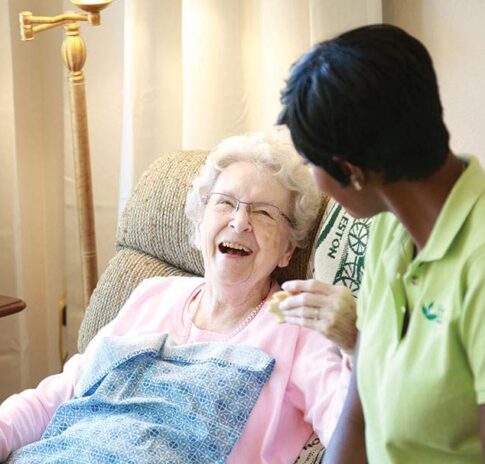Today we bring you another guest post from eldercare expert Joni Aldrich. This month, she offers suggestions for the post-diagnosis medical waiting.
If you’ve recently been diagnosed with an illness, waiting for that next phone call from your doctor or specialist can be agonizing. Here are some ideas to help you prepare for what lies ahead (and that will help that month fly by!).
The days and weeks following the diagnosis of a serious illness can be torturous. After the initial shock wears off, most patients and their caregivers are anxious for the next step so that they can begin to gear up for the fight that lies ahead. Most families find out that the medical community doesn’t typically work on a schedule that is as hurried as we might like.
In 2004, we received the news that my husband Gordon had a tumor in his spinal column. Our lives had changed forever, and we wanted information fast. To add to the pressure, Gordon was in extreme pain. After hours of bargaining and begging, we were told that our earliest chance for an appointment was still four weeks out. The thought of having to wait that long was unreal. We ended up taking him to the emergency room, he was treated with pain meds and released, but a neurosurgeon did the operation on Wednesday of the very next week. This doesn’t work in all cases, but sometimes it pays to be persistent.
Do everything that you can to expedite your consultation with a good specialist—no matter how many strings you have to pull or people you have to bother—then find ways to stay productively occupied in the days or weeks of waiting.
Research the basics. Fear of the unknown can be overwhelming. If you haven’t requested copies of all medical tests already (in the printed version, too), now is the time to do so. This is the key to doing your own research before meeting with your medical specialist. The Internet can help you translate the big words that we laymen may not understand on the report. Create a long list of questions for your doctor to cover at your appointment. But don’t get too caught up in “Dr. Google.” There’s a balance—you may find out more than you need or want to know.
Review the credentials of the medical facility (and potential second opinion facilities). Once you have a better understanding of the medical test results, you can then begin to search online for the best medical facilities for your particular diagnosis. The simple truth is that it may not be the one you’ve been referred to; that may be only a starting point. “Location, location, location” isn’t just the credo for business and house hunting. Just because one hospital is renowned for treating heart disease, you can’t assume that it’s rated well for neurosurgery. Read up on the annual caseloads, and ask for recommendations from patients who have already received treatment at those facilities.
Call on your A-team. Even though the wheels may seem to turn slowly before the first appointment, once you meet with the physician things can heat up quickly. Are you going to need some help with childcare or eldercare? What about your pets? Can someone pick up your mail? These details can be a major stress relief later. Friends and family will want to know how to help, and these tasks are the perfect response for you to give them when asked.
Keep up with your homework. Spend some time compiling lists of medical information, such as an up-to-date list of current medications, insurance provider information, or a detailed write-up of symptoms and any previous treatment. No one likes thinking about documents like their will, living will, or healthcare power of attorney, especially when the shock of a diagnosis is still fresh. Think of it as something that you need to do for your family. It’s one of the things you can control and do proactively during this time.
Actual housekeeping isn’t a bad idea either. Having a clean home is essential when you are caring for a sick patient, and not having to come home to a pile of laundry after a hospital stay will give you peace of mind as well. Don’t forget the yardwork.
Give yourself insurance reassurance. It’s no secret that medical treatments can be financially devastating if you don’t have cooperation from your insurance company. And receiving upsetting financial news at the peak of an illness or mid-treatment can cause unnecessary stress on both the patient and the caregiver. Take some time to get on the phone with your insurance provider before you begin any treatments or medical visits. Ask questions, get a detailed listing of benefits, fill out any necessary paperwork, and figure out what your up-front costs may be.
Be prepared for an emergency. Even though your scheduled appointment may still be a few days (or even weeks) away, it’s possible that you may find yourself in a situation where the patient’s condition worsens quickly. In these types of situations, you need to be prepared to take immediate action. It’s a tough decision, because you may be in an emergency room for hours on end, and hospitals contain a high volume of germs that you don’t want the patient unnecessarily exposed to. However, there are times when it will be unavoidable, and you should be prepared to take all of the medical test results, medications, and information that you have already accumulated with you.
About Joni’s cancer books (available at www.basketofcare.com)
